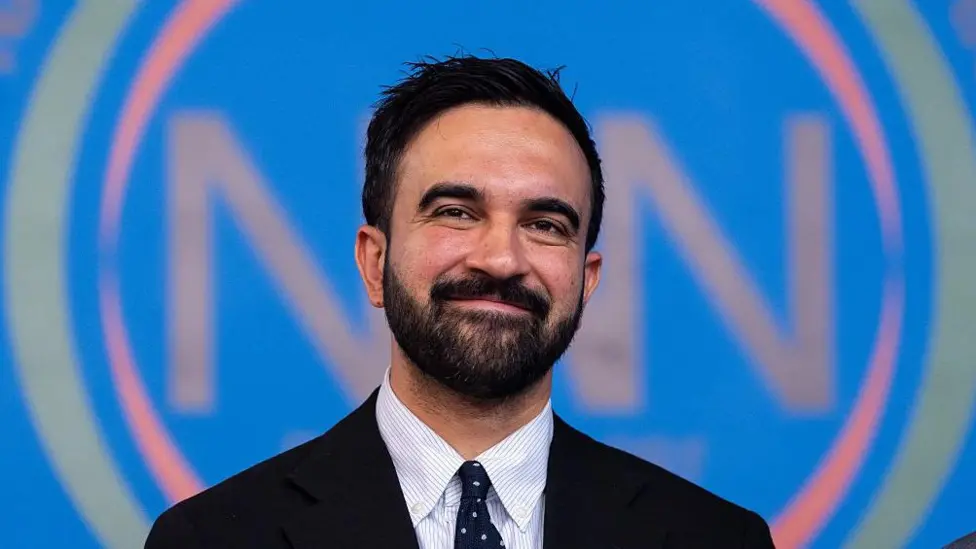
Autumn Budget 2025: What This Means For UK Muslims
26 November 2025 6 min read


Marafie El-Hussain
6 min read
Last updated on:
The biggest story last week was undoubtedly the stunning upset from Zohran Mamdani, who won the NYC Democratic mayoral primary against all odds, positioning him as the likely next mayor of America’s largest city.
The entire weight of the establishment was against him: mainstream media, big-money lobbies like AIPAC, and many Republican and Democratic power brokers. Yet somehow, in New York (a city of 8.3 million people from all backgrounds, the home of Wall Street and the pinnacle of American capitalism) he still triumphed.
Let’s be clear: Zohran Mamdani is not a “Muslim politician” implementing “Islamic economic policies.” He’s a democratic socialist whose background includes both Muslim and Hindu heritage, and as Muslims, we might well disagree with various aspects of his policies.
But his victory presents us with a valuable opportunity to reflect on a deeper question: what could an authentically faith-inspired politician’s economic policy actually look like?
By the way, we also recorded an interview with Sami Hamdi on his thoughts for what Mamdani’s win means for Muslims which you can watch here:
This victory represents a significant blow to AIPAC’s influence. The pro-Israel lobby spent over $100 million on the 2024 election cycle and is known for threatening anyone who opposes Israel with well-funded opposition campaigns. Pro-Israel lobby group Sensible City spent over $100,000 opposing Mamdani’s campaign, whilst Andrew Cuomo, who put Israel at the forefront of his campaign, raised $35 million compared to Mamdani’s modest $9 million.1
This suggests the faltering power and influence of AIPAC and similar lobby groups in elections. Their threats have lost potency and no longer deter people from standing up to them.
Despite all this, Mamdani hasn’t shied away from making clear his stance on the issue of Israel: he’s openly pro-boycott, and has taken part in marches and hunger strikes in protest.
Islam isn’t deeply prescriptive about exact economic policies to adopt. The sharia doesn’t belong to any particular part of the political spectrum. Instead, it provides high-level principles that can guide policy thinking.
When we look at Mamdani’s victory through this lens, we’re not saying his policies are “Islamic”. We’re trying to learn how faith-based principles might inform a standard of economic policy that benefits everyone.
Several of Mamdani’s policy3 approaches reflect principles that Islam does emphasise:
Perhaps the standout moment of his campaign was a viral clip4 where each of the candidates was asked which foreign country they would visit first and as usual the chorus said Israel, but Zohran stood out and said he would stay in New York (drawing praise from staunch conservatives such as the likes of Tucker Carlson and Marjorie Taylor Greene – who aren’t friends of Muslims by any stretch5). Zohran also mentioned that he will be “standing up for Jewish New Yorkers and meeting them wherever they are” across New York.
Zohran made it clear that his priority was New York and its citizens.
Contrast this with many Muslims today in the West, who despite being based here, elect to spend most of their money ‘back home’ instead of investing in and improving our local communities.
We see this lesson from the life of the Prophet SAW, when he did Hijrah to Madina. His focus was on building Madina and improving society for all.
That’s how you win hearts and minds, of even the staunchest enemies of Islam. By working to improve the lives of all in your local areas. So volunteer, invest locally and look out for your neighbours, whatever their creed or race is.
His taxation plan shifts the burden from the working class to the wealthy (a principle clearly reflected in Islamic teachings about wealth redistribution). Specifically, his focus on NYC’s local development means taking from their rich and giving to their poor, keeping wealth circulating within the community.
The Qur’an states:
“And those in whose wealth there is a recognised right for the needy and deprived.” (70:24-25)
His taxi medallion debt forgiveness program helps drivers escape predatory loans, and reflects a key Islamic teaching.
The Qur’an says: “If the debtor is in difficulty, grant him time until it is easy for him to repay. But if you remit it by way of charity, that is best for you if only you knew.” (2:280)
His approach to housing, transportation, and food access reflects the Islamic principle that basic needs shouldn’t be rationed based on ability to pay (they’re societal obligations).
Whilst Mamdani’s policies reflect some principles that align with Islamic values, authentic faith-inspired economic policy would likely go further in several key areas:
The sharia really encourages risk and profit-sharing rather than guaranteed returns. This means policies that get lenders to share risks with entrepreneurs, reducing the advantages of simply lending money and encouraging more productive investment in actual businesses and innovation.
Like zakat, which targets idle wealth rather than productive moving wealth, authentic Islamic economic policy would distinguish between wealth that’s actively contributing to society and wealth that’s just sitting there accumulating returns.
This means policies that would restrict or eliminate “sin industries”. These are businesses that might be profitable but are ultimately harmful to society. This could include everything from predatory lending to industries that exploit addiction.
Rather than just redistributing wealth, Islamic principles emphasise creating systems where wealth is generated through productive activity that benefits society as a whole.
This brings us to the core question: what does an authentic, actually-faithful politician’s economic policy look like?
It’s not necessarily about implementing “Islamic economic policies” in a literal sense. Instead, it’s about faith-inspired policies that could benefit everyone by:
Prioritising Community Benefit Over Pure Profit: Policies would consistently ask whether economic activity serves the community’s wellbeing, not just generates returns for investors.
Encouraging Productive Over Speculative Activity: Rather than rewarding financial speculation, policies would favour investments in real businesses, infrastructure, and innovation that create lasting value.
Building Systems That Prevent Exploitation: This means proactively designing economic systems to prevent the kind of predatory practices that harm vulnerable people.
Balancing Individual Success With Community Responsibility: Successful individuals and businesses would have clear obligations to contribute back to the community that enabled their success.
Implementing these principles faces real challenges:
Integration: How do you promote risk-sharing in an economy built on guaranteed returns? How do you encourage productive investment when speculation is often more profitable?
Political Feasibility: Faith-inspired economic policies need to appeal to diverse constituencies, not just religious communities.
Practical Implementation6: High-level principles need to be translated into specific policies that actually work in complex modern economies.
But these challenges also create opportunities. Economic crises reveal the limitations of current systems and create openings for alternative approaches. The housing crisis, student debt crisis, and climate crisis all provide concrete opportunities to demonstrate how faith-inspired principles can offer practical solutions.
Mamdani’s victory (regardless of whether we agree with all his policies) proves that economic approaches emphasising community benefit over pure profit can succeed even in the most capitalist environments.
This creates possibilities for authentic faith-inspired politics:
Zohran Mamdani’s victory teaches us something important: policies that prioritise community wellbeing over pure profit can win elections and solve real problems, even in the most challenging political environments.
For Muslims reflecting on what authentic faith-inspired politics might look like, this victory provides a case study (not in Islamic economics per se, but in how certain principles we value can translate into practical policy that benefits everyone).
The question isn’t whether Mamdani is implementing “Islamic” policies (he isn’t), but whether his success demonstrates the viability of approaching economic policy through a lens that prioritises community benefit, prevents exploitation, and ensures that prosperity is shared rather than hoarded.
That’s a conversation worth having, regardless of your political affiliation or religious background. Because ultimately, the question of what economic policies actually serve human flourishing is one that affects us all.

26 November 2025 6 min read

23 September 2025 4 min read
Danial
3 months ago
Really thought-provoking read it’s interesting to see how Mamdani’s win sparks deeper reflection on what faith-inspired, community-focused economics could look like